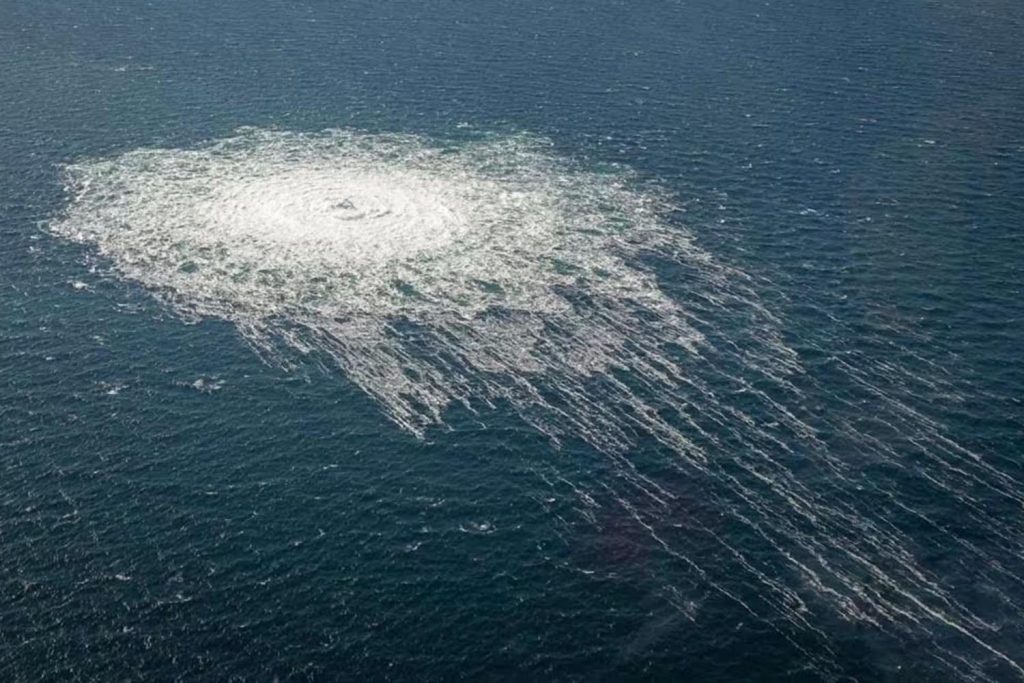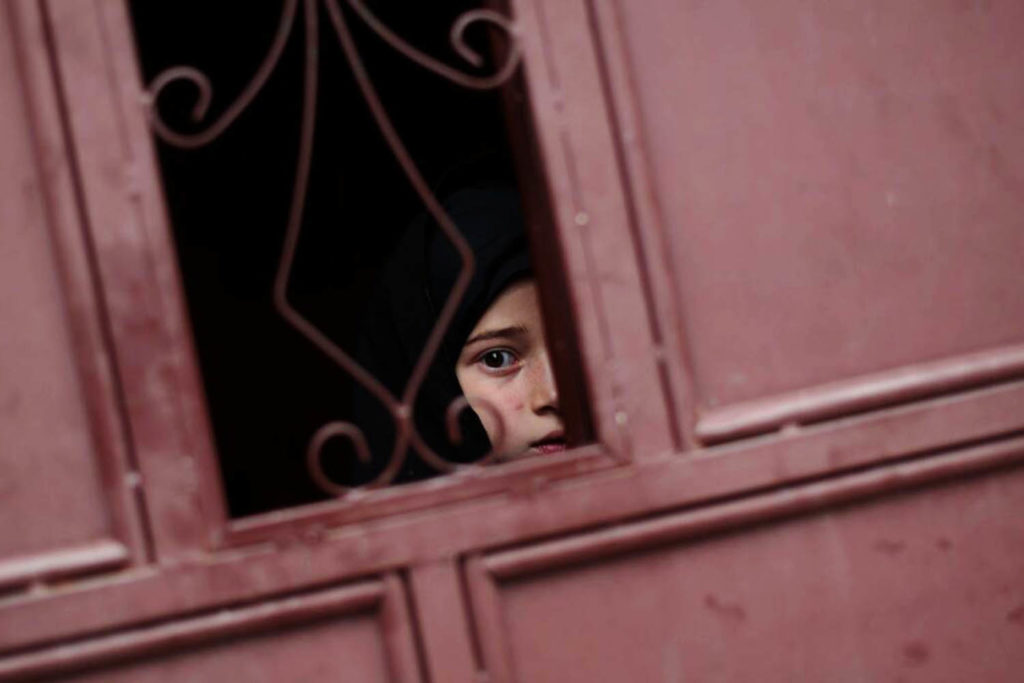What just happened

- North Korea fired a ballistic missile into the East Sea as US Vice President Kamala Harris prepared to visit Seoul.
- Cuba was left completely without power after Hurricane Ian hit the western side of the island.
- Britain said it would withdraw half its soldiers deployed to Estonia by Christmas.
The IMF wants Liz Truss to “re-evaluate” last Friday’s disastrous mini-budget, and no wonder. It has upended the bond market, shaken a £3 trillion pensions industry and shredded the UK’s reputation for fiscal probity.
But the UK’s new prime minister has more pressing worries than the IMF or even a revived Labour Party with a 17-point lead in polls. Her shock therapy package for the economy is in danger of being torpedoed by her own MPs because of the soaring cost of borrowing.
Debt costs. Sterling’s swoon against the dollar since last week devalues British assets and raises the price of British imports but its impact on the real economy – and on politics – will be modest compared with that of rising bond yields and the bank rate increases that are sure to follow. The rising cost of credit will:
- consume an ever-larger share of tax revenues, adding £14 billion to the £400 billion already planned in extra borrowing over the next five years just to cover extra debt service costs;
- hurt two million homeowners over the next two years as it feeds through into mortgage rates that could hit 6 per cent by next summer;
- choke off business investment and thus the growth that Truss has made her top priority.
Yesterday’s bond market moves “have sent yields up by so much that borrowing costs for the taxpayer have risen by about 2 whole percentage points in inflation adjusted terms,” says Jim Leaviss, head of fixed income investments at M & G. “This is unprecedented and is pretty damaging.”

By the numbers
- 4.1 – yield the Bank of England must now pay on its benchmark 10-year bond, in percent, up 1.26 percentage points so far this month in one of the steepest increases on record
- 627 – increase in monthly payments on an average UK two-year fixed-rate mortgage, in pounds, if rates rise to 6 per cent
- 1.8 million – UK fixed-rate mortgages due to expire next year
The Growth Plan. That’s the title of a paper published last week by the Treasury positing 2.5 percent cumulative GDP growth in three years’ time as a result of last week’s tax cuts, and 5.1 per cent in five. The paper says this growth would deliver £23 billion in extra tax receipts in that third year, rising to £47 billion in the fifth. But no experience-based evidence is offered; only 12 lines of caveats. And no analysis was commissioned or published by the Office for Budget Responsibility.
That analysis is now due next month and is expected to conclude that Friday’s mini-budget will not in fact deliver any growth. The markets have already reached this conclusion. Rising long-term bond yields are one result. Rising short-term yields (to 4.3 per cent for two-year gilts) are another. If investors thought the latter would tide the government over to calmer times, long-term UK debt wouldn’t command such a premium. But they don’t.
Two weeks into their tenure Truss and her chancellor, Kwasi Kwarteng, have managed to lose the confidence of global markets and must now decide what sort of humiliation they can endure to win it back.

The politics. The rabbit from Kwarteng’s hat last Friday was his cut in the top rate of tax from 45 per cent to 40. It was meant to signal a reopening to unfettered business. It has been seen instead as a sign of ideology trumping sound policy. Conservative MPs who don’t like the look of it could act fast:
- Changes to income tax levels require primary legislation.
- Tory backbenchers could vote down the plan to scrap the 45 per cent rate while approving the rest of the mini-budget, and one senior former minister expects them to do just that.
- To note: the average median income of 12 “red wall” Tory constituencies won by Conservatives from Labour in 2019 is £23,800, compared with a national median income last year of £31,400 (and £30,100 in Kwarteng’s Spelthorne constituency in Surrey).
It’s said that Britain relies on the kindness of strangers to fund its deficits. In fact only 25-30 percent of the new debt now being issued by the Bank of England will be bought by overseas investors. Most short-term UK bonds are bought by UK banks; most longer-term gilts by UK pension funds. Those funds in particular are worried (see Capital, below).
Kwarteng’s debut has elicited neither kindness nor tough love. Just deep concern at home, and scorn abroad.
A £1.5 trillion question
As much as £1.5 trillion in specialised pension fund investments are, if not at risk, then directly affected by the Kwarteng mini-budget, and not in a good way. Liability-driven investments (LDIs) are a form of hedge used by pension funds to make sure they’ll be able to meet their growing obligations to retirees, many of whom are still dependent on defined benefit pensions. As long-term bond yields rise, banks serving as counterparties to these hedges are asking fund managers for cash to prop them up. The fund managers are turning to the pension funds to get it. In some cases the smallprint gives the funds only two days to find the cash, forcing them to sell off assets – like ten-year gilts – at depressed prices. Don’t say: death spiral. Do say: perhaps the chancellor ought to have thought this through.

Baltic sabotage?
Three leaks on two Russian gas pipelines now churning methane into the Baltic Sea were caused by deliberate actions, Sweden’s prime minister says, adding to official warnings from Denmark, Germany and Poland. “It is probably a matter of sabotage,” Magdalena Andersson said yesterday. The gas leaks were detected on the Nord Stream 1 and 2 pipelines near the Danish island of Bornholm: the largest surface disturbance measures about 1km in diameter, with ships told to avoid the whole area. Neither pipeline was operational (although both were full of gas), raising the question: who benefits? Some energy analysts linked the attack to the opening of a pipeline that will deliver Norwegian gas to Poland, reducing reliance on Moscow. Germany said Russia’s involvement could “not be excluded”, conjuring images of mini-subs or even big ones up to no good just off the Baltic coast. Either way the leaks scupper any last hope of gas supplies to Europe via Nord Stream 1 resuming before the end of the year.

Twindemic
As the mercury fell to 5 degrees C this morning in London, the chief medical adviser at the UK’s health security agency warned there could be a twindemic of flu and Covid this winter. The dual-wave of infections could “pose a serious risk” to the public’s health, particularly those in high-risk groups. The warning comes with a call to book flu jabs as soon as possible and – if eligible – Covid booster jabs as well. This winter brings particular risk because while the mask-wearing and public gathering controls of the last few years have successfully protected many people from Covid, they have also decreased flu infections – which means lower population immunity to flu. Immunologists have also had their eyes firmly on the Southern hemisphere, where Australia is emerging from its worst flu season in five years.

Beagle wolf
It’s been 26 years since Dolly the Sheep became the first successfully cloned mammal. Cloning technology has come a long way since then. So far, in fact, that a Beijing-based biotech firm claims to have enabled a beagle to give birth to a cloned arctic wolf – called Maya. The Global Times reports that the Sinogene Biotechnology Co, which primarily clones pets, cloned the wolf because its species was endangered. The firm also announced a partnership with the Beijing Wildlife Park for “gene seed preservation cloning technology” applications in rare and endangered wild species. Not for the first time, experimental Chinese cloning seems to be racing ahead of ethics-based regulation.

Jungle rescue
A group of children have been rescued from a compound in the Mexican jungle a few miles from Tapachula, near the Guatemalan border. They were being held there by the Lev Tahor, an extremist Jewish group numbering about 350 members and spread across several countries. Declared a “dangerous cult” by a court in Israel, the group has been nicknamed the Jewish Taliban thanks to hardline positions on a range of issues including child marriage and a requirement that women and girls to cover themselves. The Mexican police officers who rescued the children were accompanied by four volunteers from Israel, some of whom were former Mossad agents. The children are being returned to their families in Israel. Mexican authorities detained 26 Lev Tahor members, including two leaders. Those detained could face up to 20 years in prison if found guilty.
Giles Whittell
@GWhittell
Additional reporting by Phoebe Davis, James Wilson and Jessica Winch.
Photographs Getty Images









